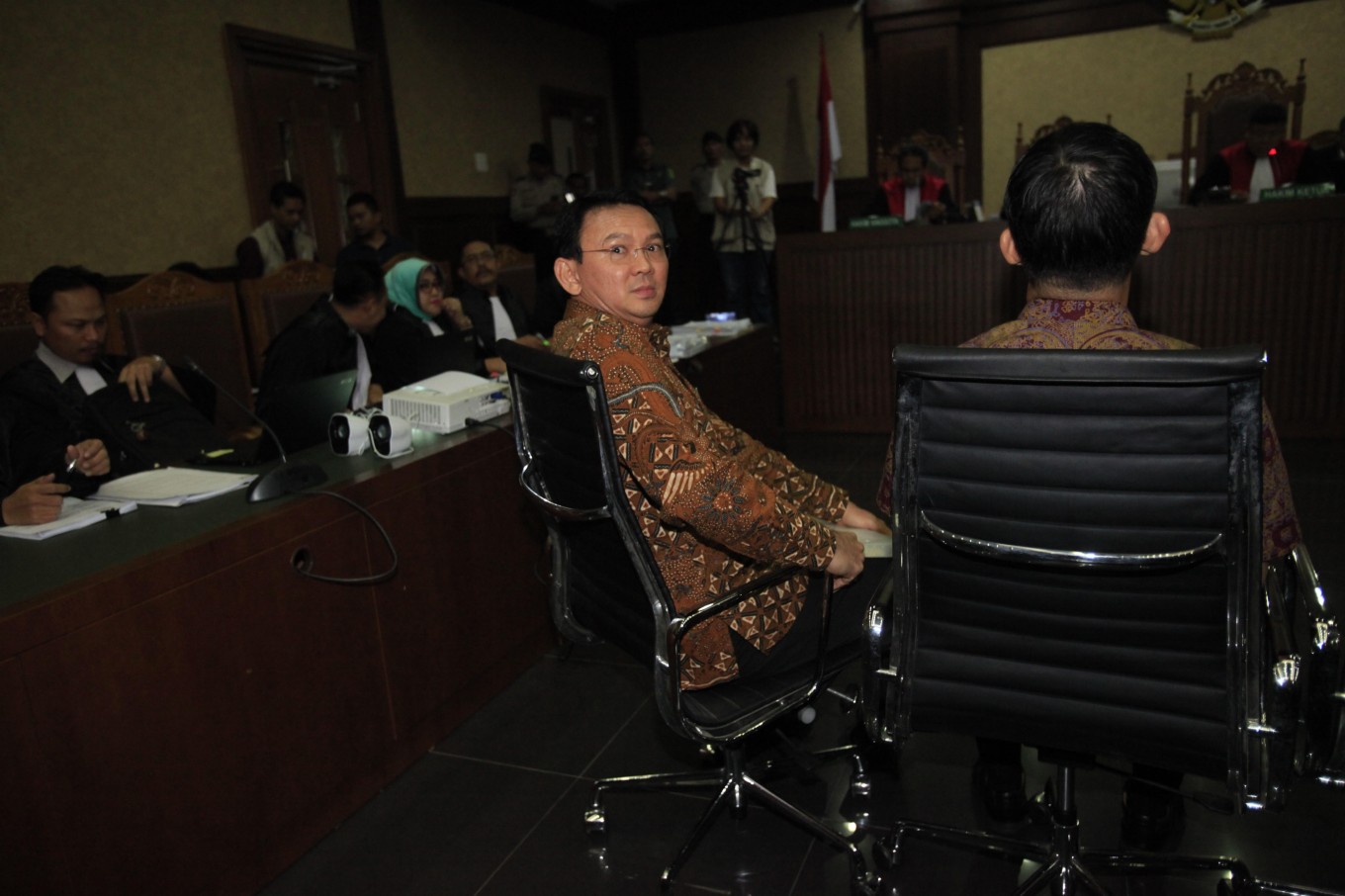Popular Reads
Top Results
Can't find what you're looking for?
View all search resultsPopular Reads
Top Results
Can't find what you're looking for?
View all search resultsIndonesians think corruption is worsening, survey says
Change text size
Gift Premium Articles
to Anyone
 Jakarta Governor Basuki “Ahok” Tjahaja Purnama appears in a court hearing at the Central Jakarta District Court on Tuesday in his capacity as a witness in the trial of Ariesman Widjaja, a former CEO of Agung Podomoro Land (APL) who was named a suspect for allegedly bribing city councillor M. Sanusi in connection with the deliberation of two draft reclamation bylaws. (The Jakarta Post/Dhoni Setiawan)
Jakarta Governor Basuki “Ahok” Tjahaja Purnama appears in a court hearing at the Central Jakarta District Court on Tuesday in his capacity as a witness in the trial of Ariesman Widjaja, a former CEO of Agung Podomoro Land (APL) who was named a suspect for allegedly bribing city councillor M. Sanusi in connection with the deliberation of two draft reclamation bylaws. (The Jakarta Post/Dhoni Setiawan)
M
ost Indonesians perceive that corruption has worsened in the country based on the frequency of electronic and print media outlets producing corruption-related news reports, a survey has revealed.
The survey commissioned by the Centre for Strategic and International Studies (CSIS) found that 66.4 percent of respondents believed corruption in Indonesia had worsened in the nearly two years since President Joko “Jokowi” Widodo took office. Only 10.8 percent of respondents thought corruption cases in Indonesia had decreased, while the remaining 21.3 percent said the cases remained stagnant.
“Although they think that the number of corruption cases are increasing, 50.4 percent of the respondents believe that the country is serious about eradicating corruption,” CSIS researcher Arya Fernandes told a press conference on Tuesday, adding that 28.2 percent of respondents said the government was not serious enough.
Conducted from April 17 to 29, the survey involved 3,900 respondents aged at least 19 years old who gave their answers in a one-on-one interview. They comprised 1,900 respondents from Aceh, Banten, North Sumatra, Papua, and Riau, which were claimed as vulnerable to corruption by the Corruption Eradication Commission (KPK). Meanwhile, 2,000 respondents were from 29 other provinces.
CSIS politics and international relations department head Vidhyandika Djati Perkasa said the survey’s respondents believed most graft convicts received light punishments, which led to the increase in corruption cases.
He added that court judges tended to impose punishments on graft convicts that were lighter than what prosecutors had demanded, thereby not creating a deterrent effect.
In 2014, the Indonesian Corruption Watch (ICW) observed 479 graft convicts and said 372 of them received less than four years’ imprisonment, with an average punishment of 2.8 years in prison. (wnd/ebf)









